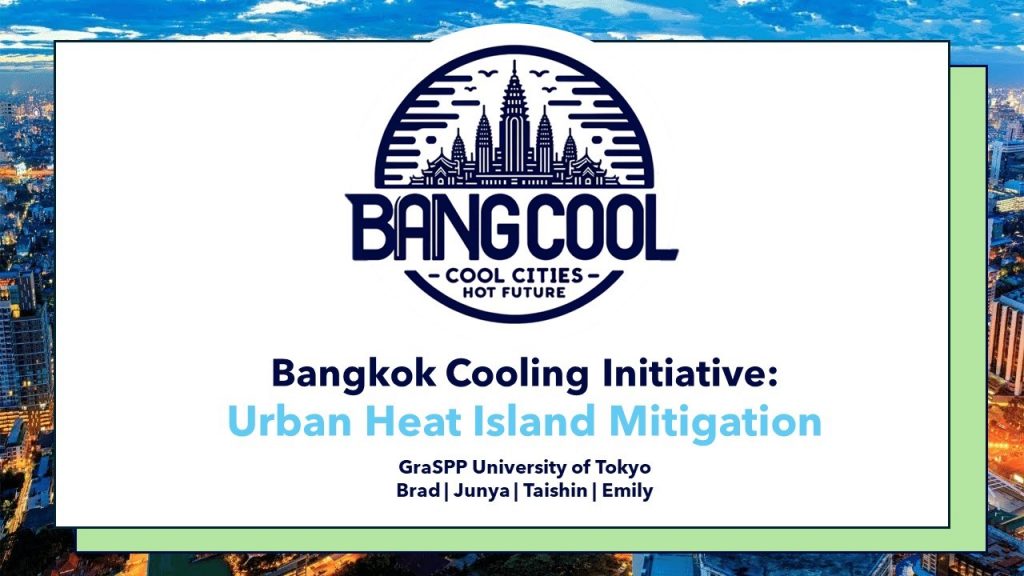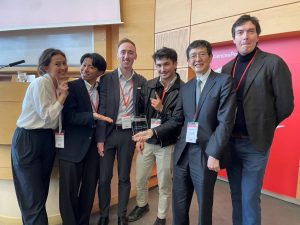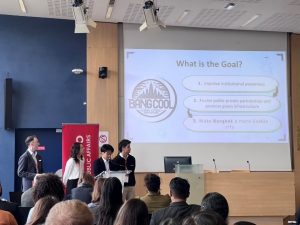Bangkok Cooling Initiative – Incentivizing Private Investment for Urban Heat Mitigation in Bangkok, Thailand
By Junya Eriguchi, Emily Murnane, Bradley Murray, Taishin Noble
The Bangkok Cooling Initiative, or ‘BangCool’, aims to empower local actors to reduce the impact of climate change-induced heat on vulnerable populations in Bangkok, Thailand. The initiative specifically addresses the ‘urban heat island’ (UHI) effect, which causes urban areas to be significantly hotter than the non-urban landscape, increasing the risk of heat-related illness and mortality. Bangkok’s poor urban planning makes it one of the cities expected to be most affected by UHI, with low-income communities in densely urbanised areas particularly vulnerable. In addition to a fragmented system of local governance that has limited the ability of policymakers to address the issue, Bangkok requires a policy approach that effectively aligns the interests of public and private stakeholders toward greener forms of infrastructure development.
BangCool addresses these issues through a series of reforms aimed at positively influencing the behaviour of private developers. This is structured into two main phases: the first focuses on building awareness and expertise within the private sector stakeholder environment, and the second focuses on providing targeted incentives from local authorities that instil behavioural change. This inclusive approach, including affordable incentives and participation in development pilots with government and local community stakeholders, has been designed in recognition of the previous failures of an enforcement-based approach in Bangkok.
Through this initiative, we envisage reduced heat-related hospitalisations and deaths, increased private sector investment in UHI mitigation measures, and reduced public health expenditure in Bangkok in the short term. In the longer term, we predict an improvement in health indicators and productivity for Bangkok’s residents and an increase in the climate resilience and sustainability of Bangkok’s urban infrastructure.




